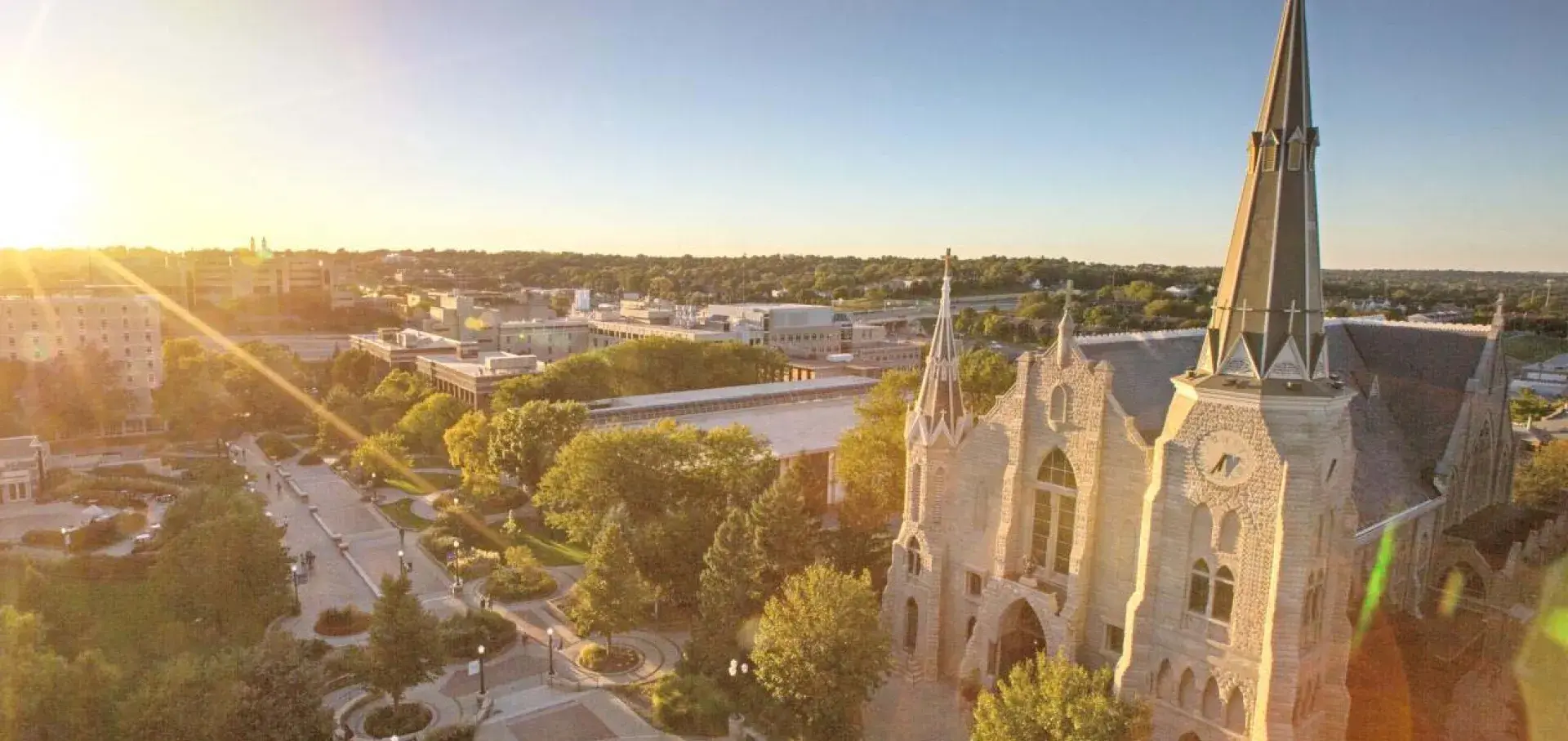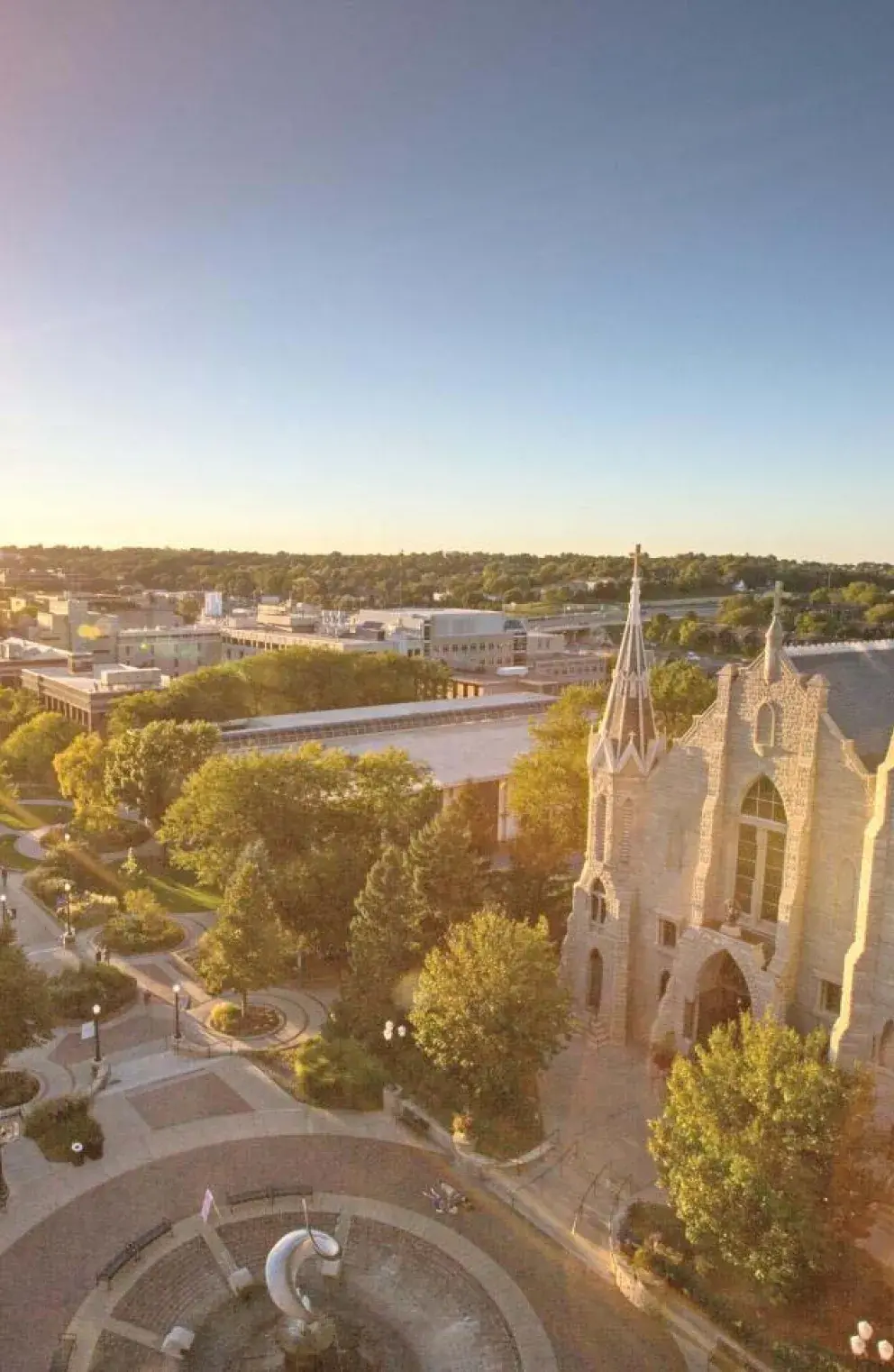
African American and Black Diasporic Studies (Minor)
Creighton’s African American and Black Diasporic Studies minor looks at American history, literature, politics, social sciences, education, and the arts through the prism of the African American experience. That perspective will enable the formation of culturally proficient medical practitioners, nurses, teachers, lawyers or business people.
Students will explore African arts, culture and literature, learning about the history of the African diaspora through Creighton’s Jesuit, Catholic framework. In your studies, you’ll get a multidisciplinary perspective on African social, political, intellectual and artistic currents in the Americas, Africa and Europe.
Program Details
Program Goals
The African American and Black Diasporic Studies minor is designed to encourage students to investigate areas within the African American experience connected to their major or track.
You will:
- Identify how literature and history represent human experience in racial, individual, social and cultural dimensions and learn to analyze and think critically through textual analyses and discussions of world and national historical events
- Identify knowledge of key historical developments that have significantly shaped African American and Black cultures
- Receive meaningful exposure to the human and social consequences of injustices on individuals
- Articulate the nature of justice by serving for the common good and working as agents of social justice as community leaders, global citizens and professionals within students’ chosen disciplinary or career field
- Understand social justice implications of government policies, economics and education and identify opportunities to promote social justice and human dignity
- Understand African Christianity and reasoned and integrated conclusions concerning the relationship of human persons to God and the search for truth in light of either philosophical reason or systematic theology or both
- Learn through study abroad courses about different cultures and how the local is shaped by and resists the global
- Learn about Black culture through African Study Abroad (FLPSA), Service Learning courses, Black History events (lectures, films, music, etc.) organized each year and the AFSA (African Student Association) and CUASA (Creighton University African American Student Association) student banquets
Curriculum
The African American and Black Diasporic Studies minor is 18 credits. Take a look at the curriculum in Creighton’s catalog.
Admissions Requirements
Creighton admissions are based upon:
- High school GPA
- ACT or SAT scores*
- Extracurricular activities
- Personal statement to demonstrate creative abilities not reflected in your transcripts
- Recommendation from high school counselor
- Honors sections and advanced placement courses will enhance a candidate’s application
*For students who are choosing to apply test-optional, ACT/SAT exam scores are not required at the time of application for admission.
Current Creighton students should note, a student may not declare a minor until he or she has been accepted into a major. Students declare minors with the minor declaration form.
Eighteen credits of coursework are required to complete a minor. Students must achieve a cumulative GPA of 2.00 in courses toward the minor.
Dates & Deadlines
Applications for the fall semester open on Aug. 1 of the prior year. For scholarship consideration, the earlier you complete your undergraduate application, the better. For up-to-date deadlines, visit our admissions page.
Tuition & Financial Aid
Tuition rates are updated each year. Visit our financial aid site to learn more about the cost of attendance.
Financial Aid
Creighton University’s Financial Aid Office administers over $200,000,000 in student aid each year from federal, state, institutional and private sources.
To help make your undergraduate studies at Creighton University more affordable, we encourage you to file the FAFSA to apply for financial assistance. A variety of scholarships are also available.









